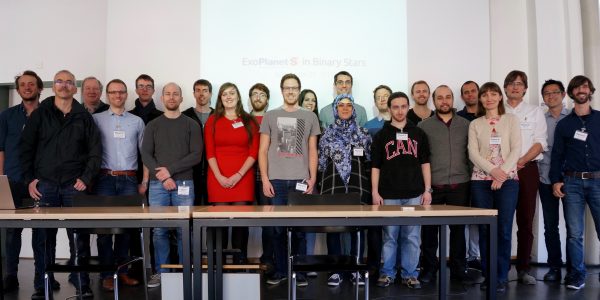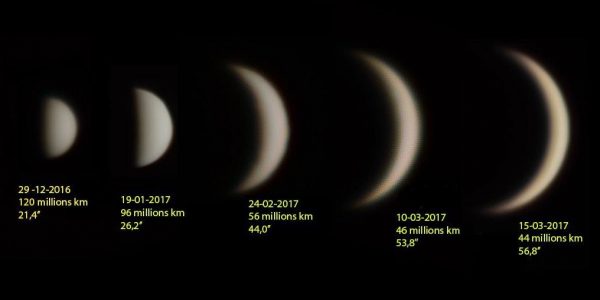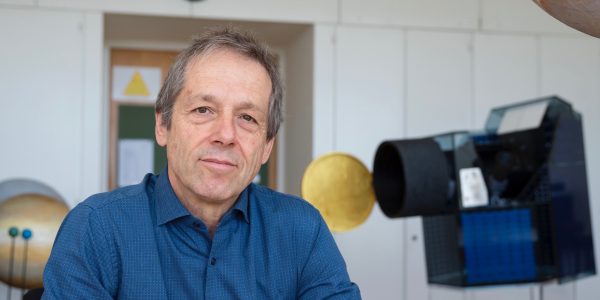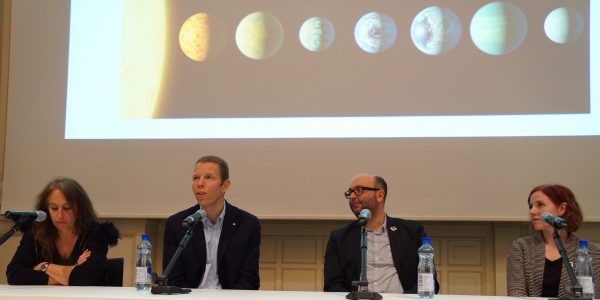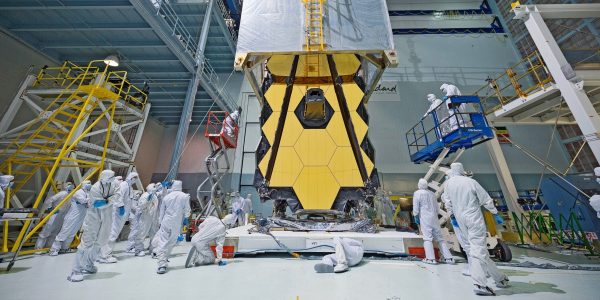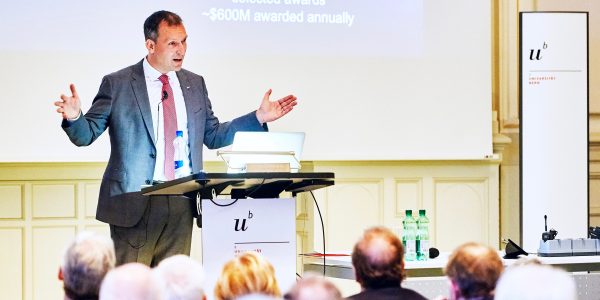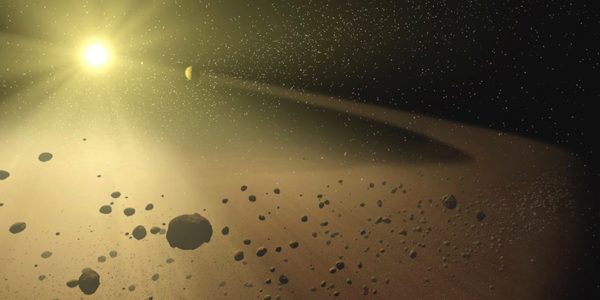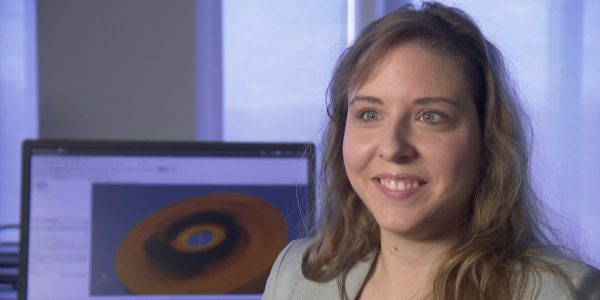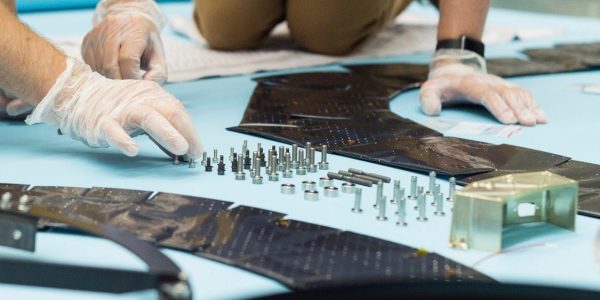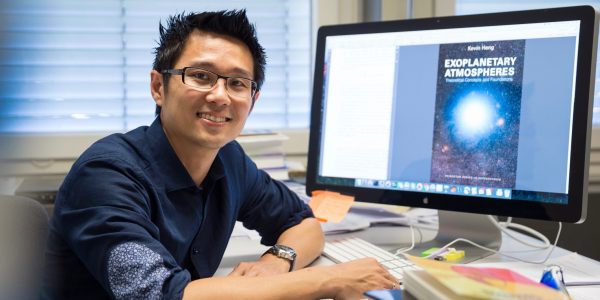News
Workshop on Planets in Binaries
A workshop on planets in binary stars was organized on Monday 27th of March 2017 in Berne. The organizers were composed of 4 members or associates of the NCCR PlanetS, Sebastian Daemgen (ETHZ), David Martin (UNIGE), Stéphane Udry (UNIGE) and Natacha Brügger (UNIBE). The main goal of the workshop was to reunite all the scientists […]
Continue ReadingThe phases of planets
On Saturday 25th of March 2017, Venus is at new phase and at the same time closest to the Earth, at 42 millions of kilometres (110 times the average Earth-Moon distance). This event is a good opportunity to talk about the phases of planets, including exoplanets, and to see what information they can teach us. In […]
Continue ReadingCuriosity driven research
Dear Reader, „Basic research is incredibly important” states Thomas Zurbuchen the new NASA Associate Administrator for the science Mission Directorate during his lecture at the University of Bern. Obviously, for us at PlanetS this was sweet music to our ears… Curiosity driven research (another expression for basic research) strives at understanding the world that surrounds […]
Continue ReadingDreams of another world
The discovery of seven earth-like planets around an ultracool star made headlines worldwide. How does the so called TRAPPIST-1 system look like? This question was answered by scientists and a science fiction writer during an event at the University of Bern organized by the Center for Space and Habitability (CSH) and the NCCR PlanetS. «Exoplanet […]
Continue ReadingA new era for planetology
Hubble’s successor, the James Webb Space Telescope (JWST) is complete. It still has to undergo a battery of tests before its launch end 2018. The capacities of this instrument in the field of planetology are such that several astronomers of PlanetS are already planning time demands. “We can break through the clouds and analyze the […]
Continue Reading«Basic research is incredibly important»
As NASA’s new science director, Thomas Zurbuchen announced the discovery of seven Earth-sized planets around the nearby star TRAPPIST-1 at a live-streamed press conference that was followed worldwide at the end of February. A month earlier, the Swiss born physicist had visited the University of Bern where he had studied and gained his PhD. «I […]
Continue ReadingSunbathing meteoroids
Just as you can tell where your friend spent his holidays based on the tan of his skin, scientists can tell where and for how long meteorites travelled in space. Like your friend, meteorites have been exposed to solar radiation which have left peculiar imprints on their outer layer. Together with colleagues, Antoine Roth, postdoc […]
Continue ReadingOne of «30 under 30»
The American business magazine Forbes is famous for its annual ranking lists of young influential people in different categories. Among the hot-shot collection of 30 young European scientists in 2017 is Judit Szulágyi, postdoctoral fellow of ETH Zürich and member of PlanetS – the only astrophysicist on the list. The video shows who she is […]
Continue ReadingHow to build a space telescope
In the next months, engineers at the University of Bern will assemble the CHEOPS space telescope integrating parts arriving from all over Europe. CHEOPS, the CHaracterising ExOPlanet Satellite, is dedicated to study planets orbiting stars outside of our Solar System. Before building the flight model, the team used a structural model for testing which had […]
Continue ReadingExoplanetary Atmospheres
«Studying and understanding the atmospheres of exoplanets is an indispensable step on the path towards addressing one of the oldest questions posed by humanity: Are we alone?» writes Kevin Heng, Director of the Center for Space and Habitability of the University of Bern and member of PlanetS. In his new textbook on the theory of […]
Continue Reading
